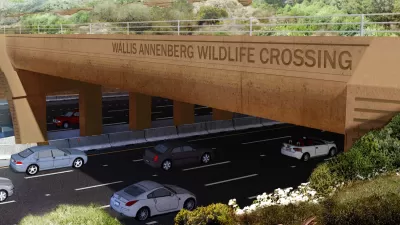Who wins and who loses after selfish development decisions are tallied?
 The tedium associated with the ongoing debate between proponents of Smart Growth and its detractors can be argued in a more "rational" arena by placing the opposing perspectives in the context of the newly revived "Prisoner's Dilemma" as presented in last year's movie "A Beautiful Mind." Since the issue of personal choice is commonly bantered about in these circular arguments, why not make the final measurement via a zero-sum analysis.
The tedium associated with the ongoing debate between proponents of Smart Growth and its detractors can be argued in a more "rational" arena by placing the opposing perspectives in the context of the newly revived "Prisoner's Dilemma" as presented in last year's movie "A Beautiful Mind." Since the issue of personal choice is commonly bantered about in these circular arguments, why not make the final measurement via a zero-sum analysis.
The dilemma captures the net benefit of choice: if two prisoners, separated and interrogated, choose to cooperate by not ratting on one another, they will both benefit by obtaining a lighter sentence (e.g. 5 points each). If, however, one cooperates and the other does not, the latter wins (10 points) and the cooperator gets nailed (-10 points.) If they both rat on each other, they both go to jail for a long period of time, but the net sum is a wash (0 points).
Now I am but a simple planner, and do not purport to have this theory down pat, but I will present the first crack at the analysis in order to get the ball rolling.
First, let us make the two prisoners potential homeowners. Each is given the choice to either: a.) build a dream home with no capacity limitation with respect to land area and the amount of resources and infrastructure required; or b.) build a more modest dwelling that consumes less space and resources.
If both refuse to cooperate, which is the purported rational choice of the individual (because they stand to gain so much more), then the world would consist of immense, resource-intensive houses built over huge tracts of land. By Prisoner's Dilemma standards, this is a zero sum result with no benefit.
If one cooperates by building a modest house and the other opts to build a large mansion in the suburbs, then the defector wins by acquiring the goodwill of the former.
If they both cooperate, neither would have their dream house, yet both would experience a modest gain.
Thus the Prisoner's Dilemma illustrates unequivocally the benefits of cooperation over “selfishness." (Note that these terms are widely used by Dilemma theorists.)
In an effort to stir it up just a bit more, I wish to include in the debate the notion of sub-optimization: the theory that suggests the cooperative model only works in the long term since time is required to reveal the obvious benefits of cooperation. The theory purports that in the short term, the "rational" response is the "selfish" option simply because the net gain is so extraordinary and the benefits of the alternative are not apparent.
Therefore, I suggest that the Smart Growth planners have stepped forward as the interim guardians of the cooperative model while the fruits of cooperative labors are only fledgling. Once realized, the onerous, heavy handed regulations, guidelines and legally binding Official Community Plans that planners foist upon citizenry, may, eventually, fade into oblivion as citizens will naturally choose cooperation over selfishness, if for no other reason than the apparent zero-sum advantage.
Susan Hallatt works as a community planner for the transportation engineering firm Boulevard Transportation Group.

Pennsylvania Mall Conversion Bill Passes House
If passed, the bill would promote the adaptive reuse of defunct commercial buildings.

World's Largest Wildlife Overpass In the Works in Los Angeles County
Caltrans will soon close half of the 101 Freeway in order to continue construction of the Wallis Annenberg Wildlife Crossing near Agoura Hills in Los Angeles County.

U.S. Supreme Court: California's Impact Fees May Violate Takings Clause
A California property owner took El Dorado County to state court after paying a traffic impact fee he felt was exorbitant. He lost in trial court, appellate court, and the California Supreme Court denied review. Then the U.S. Supreme Court acted.

California Grid Runs on 100% Renewable Energy for Over 9 Hours
The state’s energy grid was entirely powered by clean energy for some portion of the day on 37 out of the last 45 days.

New Forecasting Tool Aims to Reduce Heat-Related Deaths
Two federal agencies launched a new, easy-to-use, color-coded heat warning system that combines meteorological and medical risk factors.

AI Traffic Management Comes to Dallas-Fort Worth
Several Texas cities are using an AI-powered platform called NoTraffic to help manage traffic signals to increase safety and improve traffic flow.
City of Costa Mesa
Licking County
Barrett Planning Group LLC
HUD's Office of Policy Development and Research
Mpact Transit + Community
HUD's Office of Policy Development and Research
Tufts University, Department of Urban and Environmental Policy & Planning
City of Universal City TX
ULI Northwest Arkansas
Write for Planetizen
Urban Design for Planners 1: Software Tools
This six-course series explores essential urban design concepts using open source software and equips planners with the tools they need to participate fully in the urban design process.
Planning for Universal Design
Learn the tools for implementing Universal Design in planning regulations.























